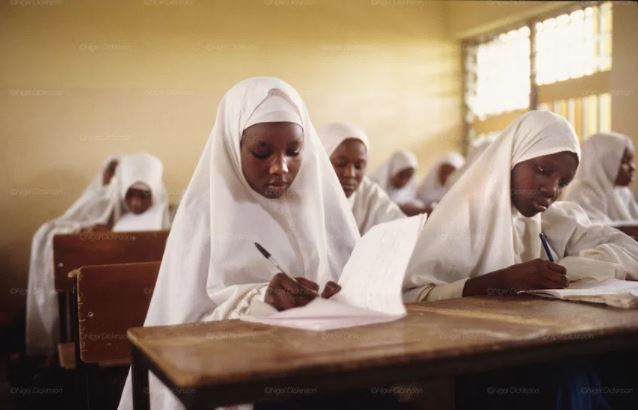
Why Northern Girls Fail Computer-Based Exams – CITAD
The Centre for Information Technology And Development, CITAD, has attributed the mass failure recorded in the 2017 Unified Tertiary Matriculation Examination, UTME, especially among female candidates in northern Nigeria, to lack of internet access.
In a research it conducted, which was presented at a 2-Day Stakeholders Meeting to Greater Access to Internet for Girls Secondary Schools in Kano State, CITAD pointed out that lack of and internet access was the reason why the girls failed Computer Based Test, since it was by JAMB, 3 years ago.
Maryam Haruna, a Programme Manager at CITAD, who presented the research on Sunday, revealed that 90% of girls secondary schools in Kano lack computer laboratories, let alone, internet access.
She added that in spite of the fact that computer studies is compulsory for all students of secondary schools, according to the national education curriculum, many girls students were only coming into contact with the computer at the examination halls.
Mrs Haruna said, “In May 2017, the Joint Matriculation Examinations Board (JAMB), Nigeria’s tertiary admission examination agency, conducted for the fifth time Computer Based Test (CBT) for admission to tertiary institutions.
“A national outcry followed the release of the examination which saw massive failure, especially among female candidates in the north.
“One of the reasons implicated in the mass failure was the lack of access to computers and internet facilities in the schools in spite of the fact that computer studies is compulsory for all students of secondary schools according to the national education curriculum.
“Instead, many students were only coming into contact with the computer at the examination halls.
“The Centre for Information Technology and Development (CITAD) conducted a research to establish the extent of access to internet and computing facilities in girls’ public secondary schools in Kano State, the most populous state in the country with a population of 9,401,288 in the 2006 census and currently now having about 16 million people.
“Like many states in the north, Kano State runs separate schools for males and females at senior secondary school level, thus allowing the possibility of differential access to internet and other facilities in the schools along gender lines.â€
On her part, a lecturer with the department of Computer Studies, Bayero University Kano, Sana Muazu, called on schoolgirls in Kano to embrace Information Technology to enhance their academic activities.
According to her, the alarming rate of girls not opportune to have internet access in girls secondary schools called for great action on the part of stakeholders.
She noted that the stakeholders were responsible for providing internet facilities for the girls to have an impeded access, especially now that the digital revolution had taken over.
She however called on the schoolgirls to embrace internet with sole aim of enhancing their academic career, not an avenue to engage on nasty stuff capable of ruining their future.





